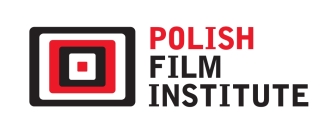Triumph of Captivity: Paweł Jaskulski Talks About Five Anti-fascist Films with Andrzej Barański
Abstract
The interview with Andrzej Barański focuses on his short works, from which the director himself has selected five anti-fascist films: Lexikon 32, Construction, History of the Soldier, Cabaret, Other People’s Children. In these films, Barański, in contrast to his feature films, deals with the theme of war. All the above-mentioned films elude the unambiguous classification of species. They consist of assembled illustrations, photos, encyclopaedic entries. Are these still documentaries or animated films? What is their message? Barański looks for the answers to these questions, carefully analysing individual film sequences, material selection, and the specificity of the work at the iconographic table. The director’s story also contains an important biographical thread. Barański turns out to be an excellent analyst of his own works; including, what is im- portant, the least known ones. Thanks to this, the artist’s entire filmography gains a new context.
Keywords:
Andrzej Barański, film anty-faszystowski, short filmReferences
Nie dotyczy / not applicable
Google Scholar
Authors
Paweł Jaskulskikwartalnik.filmowy@ispan.pl
University of Warsaw Poland
Absolwent Wydziału Polonistyki UW, współpracownik Instytutu Polonistyki Stosowanej UW. Współredaktor interaktywnego tomu Różne oblicza edukacji audiowizualnej (2016). Autor rozdziałów w monografiach, m.in.: Kultura rocka. Twórcy - tematy - motywy (2015), Kultura rocka 2. Słowo - dźwięk - performance (2016), Filmowe oblicza sportu (2017), 80s Again! (2017).
Statistics
Abstract views: 46PDF downloads: 33
License
Copyright (c) 2018 Paweł Jaskulski

This work is licensed under a Creative Commons Attribution 4.0 International License.
The author grants the publisher a royalty-free non-exclusive licence (CC BY 4.0) to use the article in Kwartalnik Filmowy, retains full copyright, and agrees to identify the work as first having been published in Kwartalnik Filmowy should it be published or used again (download licence agreement). The journal is published under the CC BY 4.0 licence. By submitting an article, the author agrees to make it available under this licence.
In issues from 105-106 (2019) to 119 (2022) all articles were published under the CC BY-NC-ND 4.0 licence. During this period the authors granted a royalty-free non-exclusive licence (CC BY-ND 4.0) to use their article in „Kwartalnik Filmowy”, retained full copyright, and agreed to identify the work as first having been published in our journal should it be published or used again.
Most read articles by the same author(s)
- Paweł Jaskulski, Films for Reading , Kwartalnik Filmowy: No. 115 (2021): Form Film, Content Film











